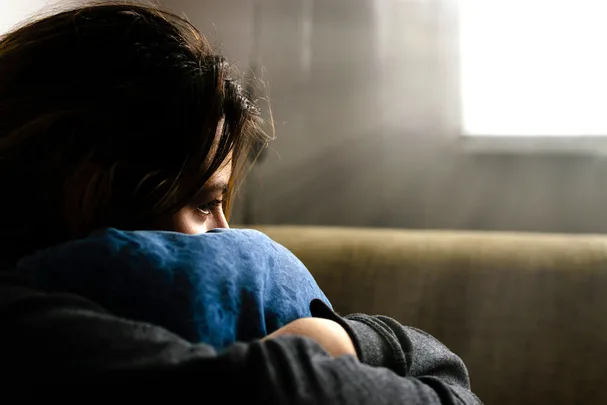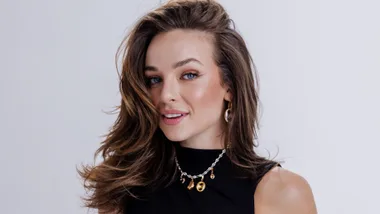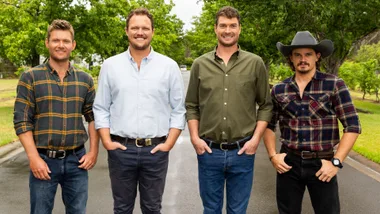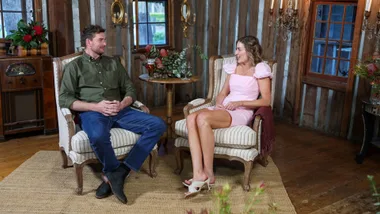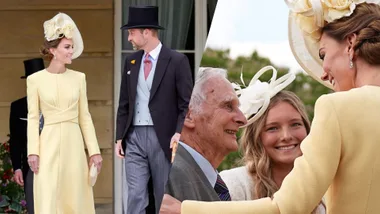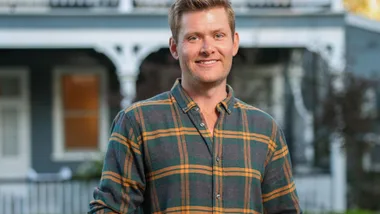At 20, I was diagnosed with generalised anxiety disorder and panic disorder. For most of my life, I’d lived with the dark cloud of fear hanging over my head – when I was little, it manifested as “fear that the world will end” or “fear of the devil”. There’s even a home video of me anxiously wringing my hands as I worry about whether the reindeer will have enough carrots. To an outsider, it’s an adorable clip of a little girl who believes in Santa Claus. To me, it’s seeing same physical manifestation of anxiety attacks that I have in my 30s.
By 26 my panic disorder had led to crippling episodes that left me barely able to cope with daily life. I’d been seeing psychologists on and off since my diagnosis, but I’d reached a point of crisis. I would lie on the floor for hours in tears, paralysed due to waves of anxiety. I had to sleep with the light on because I thought if I turned it off, the world would end.
I’d avoided anti-depressants from the outset of my diagnosis because I was of the belief that they “masked” the problem. Looking back, this attitude definitely stemmed from my parents, who for decades were staunch believers in a “chin up” mentality, like many in the baby boomer generation. Conversations with my dad make it clear that mental health was just not talked about back in the 50s and 60s, let alone mental health medication. My own grandmother suffered from anxiety but for the most part, kept it firmly under wraps.
I thought taking anti-depressants was the cheat’s way out of life’s problems, that I’d be putting a lid on my issues instead of fixing them. I worried I’d lose my personality or creativity. I was concerned about side effects like weight gain and loss of libido.
But I was also at rock bottom and couldn’t see any other way out.
I visited a psychiatrist and was prescribed Zoloft, a selective serotonin reuptake inhibitor or SSRI. SSRI’s are the most commonly prescribed anti-depressant in Australia, and different doses treat a variety of issues, including anxiety and panic disorder. I was to take 25mg for 2 weeks before increasing to 50mg, from memory. I remained on that 50mg for the past six years.
My closed-minded attitude toward anti-depressants was challenged by my own experience after that. I didn’t lose my personality. In fact, you wouldn’t have even known I had started medication because nothing changed besides the noise in my head, which felt more muffled and required less effort to manage.
Things were better, at least somewhat. I felt like my anxiety was now more manageable and that was the best I could hope for. I’d still have periods where it felt overwhelming – new relationships, new jobs, other big changes – but never to the point where I couldn’t get out of bed or paste a smile on my face.
But this year, however, I really spiralled. Chalk it up to our collective 2020 experience. I was constantly questioning my relationship, even though it was going great. I was crying daily over thoughts of my parents dying. I would find myself paralysed with indecision over the most marginal of things. I decided to visit my GP and see if my medication needed review – after all, it had been years. I explained my current situation, plus this niggling feeling like while Zoloft was working, was it actually working to the level it should be.
“Well, 50mg of Zoloft is pretty low. Have you ever considered upping the dose?” she said.
I hadn’t – I realised that the reason why I’d never considered raising my dosage was because I still held onto the belief that I shouldn’t be on medication, because it was weak.
Even though I’d become an advocate for taking anti-depressants if you need them (via a conversation with your GP or psychiatrist, of course) I still alarmingly held onto archaic ideas around what taking them meant for me. I didn’t judge others for taking higher doses or staying on meds for life – I didn’t know their situation – but I was my own harshest critic. They aren’t weak, but I am. And here I was, having increase my dose. How embarrassing.
I felt a deep sense of failure as I took my first 100mg pill. I hadn’t succeeded at “fixing” my anxiety. I felt ashamed. Now, three weeks in, I can safely say it was the best goddamn decision of my life.
I was worried I’d be masking my issues with meds. Instead, I actually just feel far more equipped to deal with them. I am clear-headed for the first time in my life, and while I still have anxious thoughts, I approach them with logic instead of buying into anything they tell me. “You need to break up with your boyfriend” is met with “but why” instead of “YES YOU’RE RIGHT, BRAIN, I DO”. Sometimes, the thoughts have weight to them, and when they do, I can sense that. But, as with most anxious thoughts, they often don’t – and I now feel able to differentiate these more easily, or sit with the discomfort of decision-making without feeling this urgency.
I never realised how relentless and exhausting my mental existence had been for all those years. So much wasted energy spent arguing with irrational thoughts stemming from anxiety.
Anti-depressants are not for everyone, nor will everyone have my experience on SSRIs. I know people who had horrible experiences with SSRIs, and take other anti-depressants. I also know people who manage their anxiety or depression without medication and cope fine. Medication for mental health should be a choice you make with your doctor, dependent on your situation and needs. It should not be taken lightly and should never be something you self-prescribe.
But it also shouldn’t be influenced by stigma – feeling like you’re failing at managing your problems or fear that you’ll become an emotionless void. There is still such a negative attitude out there driven by misinformation and old ways of thinking when it comes to anti-depressants. Only recently, influential health author and founder of JS Health, Jessica Sepel, made a statement about mental health medication on her Instagram account, posting this photo of herself holding her own anti-depressant medication.
“I too felt the enormous shame of having to go onto medication 2 years ago when I first felt the effects of anxiety and trauma,” she said in the caption. “You have no idea just how much I resisted it. Im still confused as to why I felt the shame. Is there still a stigma attached? That kind of infuriates me. Diabetics have to take their insulin and thyroid patients have to take their thyroxine. There is no difference when it comes to managing the health of our brain.”
This isn’t about medication being the only avenue for mental health management, either. Like I said, I know plenty of people who don’t feel the need for medication when it comes to managing issues.
I also still absolutely believe in the importance of therapy, of working on better thinking patterns and assessing the root cause of mental health issues, where applicable. I still do all of that – I see my psychologist fortnightly at the moment, and am committed to understanding more about myself and how I can change.
It’s about ridding our culture of the stigma around needing medication. I can say confidently that anti-depressants have greatly improved my life – looking back, I can see just how much I was missing thanks to a head plagued with anxious thoughts, day after day.
Melissa is the digital editor of marie claire. You can find her on Instagram here.
